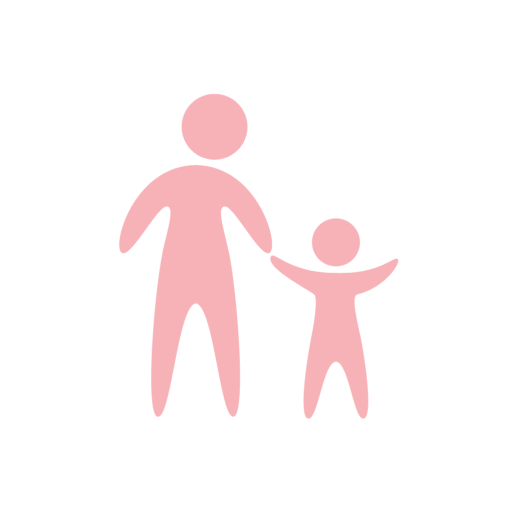Rules: 6 Nurturing Ways for a Safe and Healthy Baby Routine
Welcoming a baby brings joy, tenderness, and a new set of responsibilities that feel both sacred and practical. To help you navigate the earliest months with confidence, these six Rules focus on preventing common illnesses like the flu, encouraging resilient health, and building nourishing food and sleep habits. Thoughtful routines do more than organize the day — they protect your little one and create a calm atmosphere where growth can thrive.
1. Protect with Practical Hygiene
Prevention begins with simple, consistent hygiene. Frequent handwashing for everyone who handles the baby, sanitizing high-touch surfaces, and avoiding crowded indoor spaces during peak flu season reduce exposure. Teach visitors to wash or sanitize hands and to keep their distance if they’re feeling unwell. These small habits are among the most effective Rules you can put in place to keep colds and flu at bay.
Additionally, consider a visitor policy — brief, kind, and centered on safety. Limit prolonged close contact with many people in the baby’s first months, and prioritize well-vetted caregivers. If family members are traveling or showing symptoms, ask them to postpone visits. This compassionate boundary protects both the baby and your peace of mind.
2. Nourish Immunity Through Food and Breastfeeding
Nutrition matters from day one. For infants, breastfeeding provides antibodies and nutrients that actively support immune development; it’s a powerful, natural defense aligned with the most essential Rules of early health. If breastfeeding isn’t possible, consult your pediatrician about the best formula options and supplemental support.
As babies begin solids, introduce a variety of nutrient-dense foods at the recommended age. Iron-rich purees, gentle-yet-whole grains, and vegetables help build a resilient system. Later, family meals that prioritize whole foods, healthy fats, and seasonal produce will continue to support immunity and overall wellbeing. Food is not only fuel — it is a quiet act of care that lays the foundation for lifelong health.
3. Prioritize Rest: Sleep as a Healing Habit
Sleep is a core pillar of health. A well-rested baby is better able to fight infections and regulate mood and appetite. Establish soothing bedtime rituals — a warm bath, soft story, dim lighting, and a predictable order of events that signals rest is coming. These calming patterns are among the most gentle Rules you can offer your child.
Recognize that sleep needs shift with growth. Newborns sleep differently than toddlers; keep expectations flexible and focus on consistency rather than perfection. When both parent and child learn to respect sleep’s rhythms, the household benefits — illness recovery becomes easier, temperaments stabilize, and the family’s emotional energy improves.
4. Build Gentle Immunity with Movement and Fresh Air
Daily exposure to fresh air and safe outdoor time supports respiratory health and overall resilience. Even short walks in the stroller or time on a blanket in the park can make a meaningful difference. Sunshine, movement, and a change of scenery help regulate sleep and appetite, and they gently strengthen the body’s defenses — a simple but powerful rule among the practical Rules for wellness.
Of course, be mindful of extreme weather and crowded places during high-flu months. Layering, shade, and sensible timing of outings will allow you to enjoy nature while minimizing risk. The goal is rhythm, not rigidity: regular, calm outdoor moments integrated into your routine offer lasting health benefits.
5. Support Health with Mindful Medication and Vaccination
Vaccination is one of the clearest ways to protect infants and families from severe illness. Follow your pediatrician’s guidance on immunization schedules, including annual flu shots for eligible family members. These medical decisions align with the most responsible Rules of caregiving — actions that protect not only your child but the wider community.
When illness does occur, treat symptoms thoughtfully. Use pediatric-approved fever reducers and follow dosing instructions closely; avoid adult medications or home remedies without professional approval. Keep a small, well-stocked kit with thermometer, saline nasal drops, and pediatric fever medication so you can respond calmly. Consulting your pediatrician by phone when unsure keeps anxiety low and care timely.
6. Create Emotional Safety to Support Physical Health
Physical wellbeing and emotional safety are entwined. Stress and disruption can weaken immunity, while calm, responsive caregiving strengthens it. Prioritize soothing cues — cuddles, quiet songs, and steady routines — that reassure your baby. These nurturing acts are part of the essential Rules that keep a home both emotionally and physically healthy.
Encourage a culture of support around you. Resting when you can, asking for help, and sharing responsibilities reduces caregiver fatigue and helps you maintain consistent, patient care. A peaceful household is the most natural environment for healing and prevention.
Practical Daily Checklist
To bring these principles into daily life, consider this gentle checklist you can adapt as needed:
- Hand hygiene policy for all caregivers and visitors.
- Breastfeeding support or pediatric feeding plan for early nutrition.
- Bedtime ritual and consistent sleep rhythm.
- Daily outdoor time when possible (short, safe outings).
- Follow pediatric vaccination schedule; annual family flu shots.
- Emotional check-ins — quiet moments of reassurance each day.
These are practical, reachable actions — the kind of Rules that become habits and then second nature. Over time they compose a daily rhythm that protects and strengthens.
When to Seek Medical Advice
Know your pediatrician’s guidance for warning signs: persistent fever, difficulty breathing, poor feeding, or unusual lethargy. If your baby seems unusually irritable, refuses feeding, or shows rapid breathing, call your healthcare provider promptly. Early consultation prevents uncertainty from becoming risk, and it allows professionals to guide you through treatment or reassurance.
Keeping clear notes about symptoms (time, temperature, feeding frequency) helps clinicians offer accurate recommendations quickly. In short, being prepared and informed is one of the calmest Rules you can follow.
Bringing It All Together
These six nurturing Rules — protect with hygiene, nourish immunity, prioritize sleep, embrace fresh air, follow mindful medical guidance, and create emotional safety — form a holistic approach to baby wellbeing. They are practical, compassionate, and rooted in everyday life; each one supports the others. When combined, they create a resilient, healthful routine that reduces flu risk and builds lasting wellness.
For more thoughtful guides on family health and mindful parenting, visit CoolParentingTips. If you’d like further resources on nutrition, taste development, and food balance for families, explore TasteFlavorBook — both are excellent complements to these nurturing routines.
Care is both practical and tender. Follow these Rules not as rigid laws but as loving invitations to protect, nourish, and cherish the small body entrusted to you every day.
Learn Bond Bloom

Family Communication That Builds Respect
Family Communication That Builds Respect

Emotion Modeling Through Everyday Actions
Emotion Modeling Through Everyday Actions













